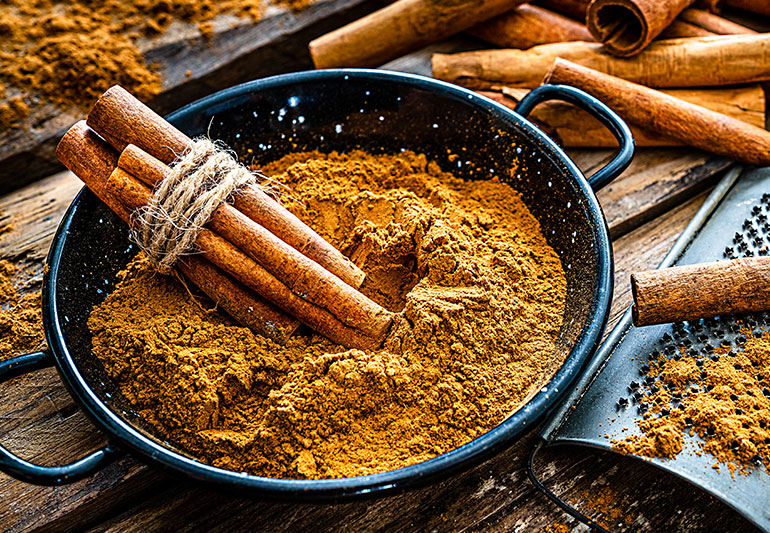Health Benefits Of Cinnamon(All You Need to Know)

Health Benefits Of Cinnamon: Cinnamon used to be more expensive than gold. And while most people nowadays prefer to obtain 24-carat gold over 24 ounces, it turns out that this fragrant tree bark may really have greater value than gold, particularly in terms of its health advantages. Antioxidants and other helpful chemicals abound in cinnamon. According to some studies, it may promote inflammation reduction, heart disease prevention, and blood sugar regulation. EnoughInfo.com

From ancient times, people have valued the therapeutic benefits of the spice cinnamon. Several of the possible health advantages of cinnamon have recently been confirmed by contemporary research.
These are 12 health advantages of cinnamon that have been verified by studies.
Read Also: 80 Sweet Romantic Goodnight Messages For Her
FAQs & Answers
1, Is it healthy to drink cinnamon on a daily basis?
There is no evidence that regular cinnamon consumption has any significant health benefits. Eating excessive amounts of it is also not recommended. Currently, there is no recommended dosage for cinnamon because of its lack of clinical proof. One common recommendation is to take between 0.5 and 1 teaspoon (1-2 grams) of powder once a day. How To Strengthen Family Bonds(Ultimate Guide)
2, What will happen if you take cinnamon on a regular basis?
Cinnamon may help reduce blood sugar levels, but consuming too much of it might be dangerous. It’s called low blood sugar, or hypoglycemia. A person may feel fatigued, dizzy, and even pass out as a result ( 20 ). Diabetes medication users are at increased risk for hypoglycemia.
3, Will cinnamon help with belly fat?
In order to metabolize cinnamon, the body expends more energy than usual, leading to a speedier metabolism. The breakdown of sugar in the body suggests that cinnamon may have an insulin-like effect. In addition to reducing overall body fat, cinnamon has been shown to specifically reduce belly fat.
The possibility of protection against cardiovascular illness
Research suggests that cinnamon may help lower the risk of cardiovascular disease, the biggest cause of mortality worldwide. One research found that persons with the metabolic disorder who took a cinnamon supplement of at least 1.5 grams (g), or about 3/4 of a teaspoon (tsp. ), per day had decreases in their triglyceride, total cholesterol, LDL (bad) cholesterol, and blood sugar levels.
Another meta-analysis of 13 trials indicated that cinnamon lowered cardiovascular risk variables such as triglyceride and total cholesterol. Consuming cinnamon regularly for at least 8 weeks has been associated with a lower blood pressure reading. Any of them separately may help lower your risk of cardiovascular disease, but together they may be much more effective.
Cholesterol, triglycerides, and blood pressure are all potential targets for improvement by cinnamon, which may reduce the overall risk for cardiovascular disease.
Read Also: 22 Fast Home Remedies to Get Rid of a Cough
It fights both bacteria and fungus.
Cinnamon is commonly employed in Chinese herbal medicine since it is believed to have several therapeutic and calming effects. The cinnamaldehyde-containing essential oils in cinnamon bark are what give it its characteristic flavor and aroma. It seems that cinnamon aldehyde can help prevent bacterial and fungal infections. How To Work With Someone Who Hates You
It could protect against cancer.
Although there has only been minimal research on cinnamon extracts in test tubes and on animals, they may offer some cancer prevention. In this aspect, the spice seems helpful in lowering the growth of cancer cells, restricting the development of blood vessels in tumors, and destroying cancer cells.
It could be advantageous for the aging brain
As we become older, conditions like Alzheimer’s become more prevalent and are generally brought on by the increasing degeneration of brain cells. The buildup of protein fragments in the brain causes Alzheimer’s, which slows down thinking and memory.
Two substances found in cinnamon seem to prevent the accumulation of these proteins. There is still a lot we don’t know about how this impact can help us as a lot of this data comes from research on animals and in test tubes.
Possibility of anti-inflammatory effects
The role of inflammation in your body’s response to infections and tissue damage makes it crucial. But, persistent inflammation that targets your body’s own tissues might be problematic.
Cinnamon might be helpful in this situation. Research has demonstrated the strong anti-inflammatory effects of this spice and its antioxidants. Cinnamon contains antioxidants that have anti-inflammatory properties that may help reduce your risk of illness. How to travel to Guinea (Visa-free Guide)
Could improve sensitivity to insulin
One of the important hormones that control metabolism and energy consumption is insulin. Transporting blood sugar from your bloodstream to your cells depends on it as well. Unfortunately, some persons are unable to respond to insulin’s effects. This is referred to as insulin resistance, which is a defining feature of diseases including metabolic syndrome and diabetes.
Several studies indicate that cinnamon may be able to lessen insulin resistance, although additional study is required. Cinnamon can reduce blood sugar levels and help improve blood sugar management by boosting insulin sensitivity.
Read Also: How To Make Beet-root Juice(Step by Step)
It could support blood pressure control.
There is some evidence to support the notion that regular cinnamon eating is linked to a temporary drop in blood pressure. Even if the research is promising, further long-term random controlled studies are required.
It might safeguard against heart disease
Blood pressure may not be the only cardiovascular risk factor assisted by frequent cinnamon eating it also appears to have a good influence on decreasing blood triglycerides as well as cholesterol levels.
Candidates may be treated with cinnamon
Moreover, cinnamon has anti-fungal effects, making it a potential therapy for candidiasis. While cinnamon was found to have efficacy against Candida in in-vitro experiments, a 2011 review of the literature found that human trials, including a pilot study in five HIV-positive individuals with oral candidiasis, had conflicting findings. For these advantages to be shown definitively, more clinical trials are required.
Loaded with antioxidants
Antioxidants stop free radicals from damaging your cells by inhibiting oxidation. Several studies have shown that polyphenols, one kind of antioxidant, may be found in abundance in cinnamon.
Antioxidant levels in the blood were shown to be greatly increased by supplementation with cinnamon, while inflammatory indicators like C-reactive protein were found to be significantly decreased. The antioxidant benefits of cinnamon are so strong that it is sometimes employed as a natural food preservative. Large quantities of powerful polyphenol antioxidants may be found in cinnamon.
Helps lower blood sugar levels
The anti-glucose effects of cinnamon are well-documented. There are a number of processes through which cinnamon reduces blood sugar in addition to its favorable effects on insulin resistance.
For one, studies have found that cinnamon cuts down on the quantity of glucose that is absorbed into the blood after a meal. To do this, it inhibits a number of digestive enzymes, which in turn reduces the pace at which carbs are absorbed and metabolized. How To Encourage Good Sibling Relationships
Second, some research suggests that a component in cinnamon might mimic insulin’s activities and boost the cells’ ability to take up sugar.
Possibility of anti-viral effects
Evidence from the scientific literature shows that cinnamon may offer some protection against viruses. For instance, research suggests that HIV-1 may be suppressed by a cinnamon extract derived from the Cassia species.
It has been suggested in recent research that cinnamon may also provide protection against the influenza virus and the mosquito-borne virus Dengue. Further human studies are still required to corroborate these results. How to Travel to Mauritius (Visa Free for 90 Days)
Conclusion
Many studies have linked cinnamon’s many uses and potential health benefits. Its potential benefits include a reduction in blood sugar levels, risk factors for cardiovascular disease, and inflammation.
Read Also: Health Benefits Of Ginger(Step by Step)




